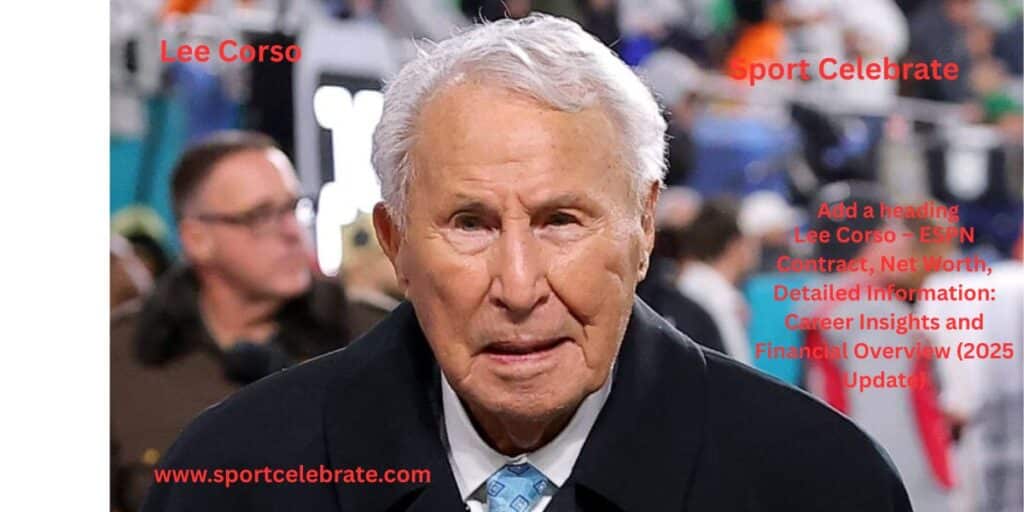Known for over three decades of the best college football media coverage through his work as ESPN College Game Day analyst, Lee Corso is an unforgettable character in college football.
His signature mascot headgear picks, fiery coaching background, and his ESPN contract details intrigue fans who wonder about his Lee Corso net worth and how much he earns as an ESPN analyst.
This article will explore Corso’s early life, coaching record, broadcasting career, his salary and contract renewals, and his philanthropy. By the end, you’ll understand what makes Corso’s journey special in sports broadcasting career and college football history.
Lee Corso’s Background and Early Life
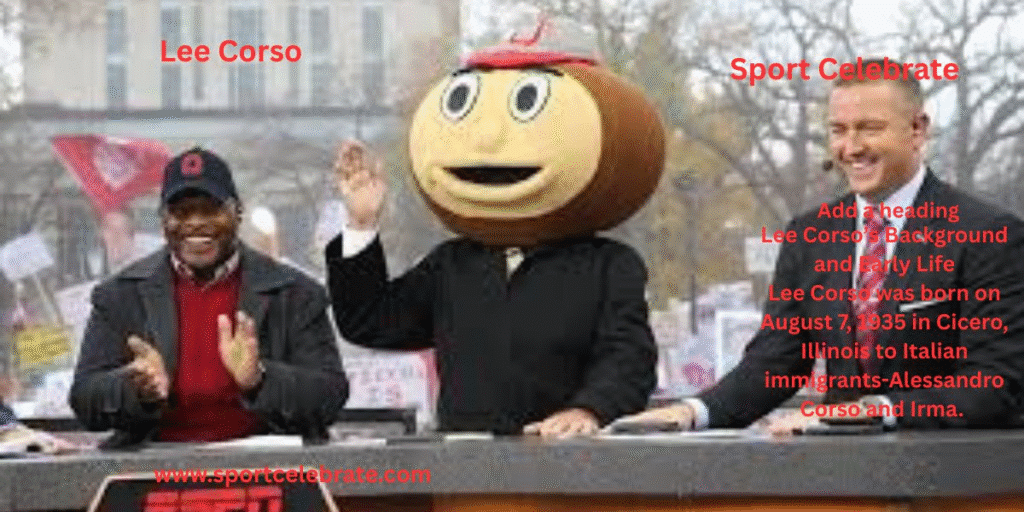
Lee Corso was born on August 7, 1935 in Cicero, Illinois to Italian immigrants-Alessandro Corso and Irma. His father was very busy laying terrazzo floors, and his mother was employed in the cafeterias.At the age of ten, Corso and his family moved to Miami, Florida.
There he participated in various sports in high school while demonstrating early leadership and toughness. Those roots nurtured Corso’s passion for football, molded his work ethic, and later formed the basis for his head coaching at Indiana University and elsewhere. His Italian lineage and humble beginnings probably grounded him in a way many fans find authentic.
Education and Collegiate Years
Lee Corso attended Florida State University, being a football active quarterback and defensive back, and a baseball active player. In FSU, he earned a B.A. in Physical Education in 1957 and a master’s degree in Administration and Supervision in 1958.
His college teammates included some who later became prominent in sports or entertainment. These collegiate years gave him deep understanding of college football coaching career, player mentality, and the gridiron inside knowledge that later helped him as a college football analyst. His academic studies also prepared him for leadership roles in coaching and later for public speaking and media presence.
Rise Through Coaching Ranks
After finishing his education, Corso began coaching as an assistant at Maryland. He then took head coaching jobs at Louisville, Northern Illinois, and most notably Indiana University.
His coaching record in college reflected some fortune with wins and losses, ties, and against tough competition whether in the Big Ten or elsewhere, though he never managed to win the national championship. Indeed, he had a reputation of transforming underdog teams into competitive sides. He also coached the Orlando Renegades of the USFL
These years imparted to him the skills of strategy, discipline, and the fine art of motivating players, which later proved possible after transitioning into sports commentary, leading to a humorous interpretation and credibility on television.
Overview of Broadcasting Career
Corso first joined ESPN in 1987 to host College GameDay, which showcased previews of Saturday MC colleges nationwide. In a sense, he will become more than just an analyst; he becomes a personality.
It brought color and anticipation, rivalry knowledge, and enormous enthusiasm. He worked alongside GameDay actors such as Kirk, Rece Davis, and Desmond Howard. Corso’s comic timing and quotable lines alongside tears turned the show from simple analysis to appointment viewing.
Coaching to broadcasting proved to be the ultimate diversification in his career and, in fact, set a precedent for former coaches to become media solid stars.
Transition to Television
When Corso switched from coaching to TV, he had to adapt. He moved from the locker room and sideline to the studio, camera, and mic. He learned how to break down games for regular viewers, not just coaches and players.
He developed his signature style: blending analysis with humor, and making predictions via headgear picks tradition (more on this later). He built trust with viewers by showing passion and vulnerability, like after his stroke in 2009. Corso’s storytelling and personality are as important to his television role as his knowledge of plays or teams.
College GameDay Legacy
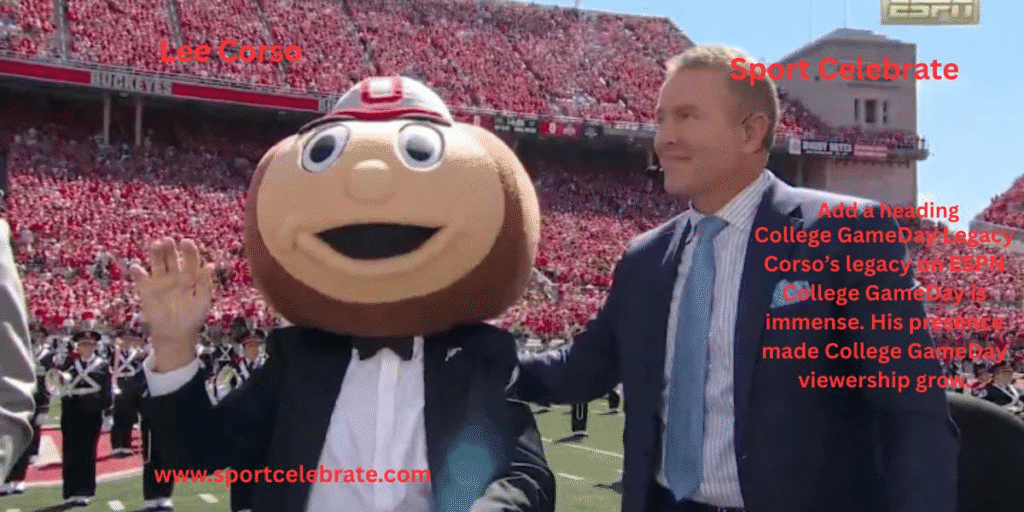
Corso’s legacy on ESPN College GameDay is immense. His presence made College GameDay viewership grow. College football fans tuned in not only for team previews but for Corso’s pick, his energy, his interactions with other analysts.
His sense of tradition, like putting on a mascot’s helmet or head piece to pick the winning team, became one of the most anticipated parts of the show. Over the years, his record of mascot headgear picks—whether he chooses Ohio State, Notre Dame, Stanford or others—became almost legendary.
GameDay, in part because of him, shaped modern college football broadcasting and media coverage.
Details of Lee Corso’s ESPN Contract
The ESPN contract details for Lee Corso are not fully public. What is known is that his deal includes on‑air appearances on College GameDay, public speaking obligations, special event participation, and endorsements.
As Corso aged, parts of his contract were adjusted to accommodate reduced travel and health issues. ESPN valued him not only as an analyst but also as a brand ambassador and legacy figure.
His contracts periodically renewed, reflecting his importance in college football media. The terms include renewal options, compensation for special segments (like headgear picks), and roles beyond just game analysis.
Contract Timeline and Renewals
Corso’s initial ESPN contract began in 1987. Since then, multiple renegotiations have occurred. In many of those, his role expanded, pay increased, travel adjusted. Recent renewals account for his reduced mobility and desire to limit travel, but still ensure he appears for key games and iconic moments. E
SPN has shown flexibility: allowing remote contributions, special segments, and preserving his classic presence. Each renewal acknowledges both fans’ affection for him and his continuing influence on college football TV ratings.
Role as ESPN Analyst
As an ESPN analyst, Corso spends time previewing games, debating predictions, and delivering commentary on broader trends in college football history—conference realignments, playoff systems, coaching changes.
He often opens up about the sport’s health issues like concussion awareness. On College GameDay, viewers expect his opinion, his humor, and his bold calls. He is less behind-the-scenes these days. His contributions outside live broadcast include public appearances, endorsements, and serving as a cultural touchstone in college football media.
Unique Aspects of the Deal
Corso’s contract is unique in several ways. It grants him a legacy status: his contributions (e.g. the headgear picks, traditions) are recognized formally. The deal is tailored for someone past his prime physically but still culturally important. It includes compensation for non‑traditional duties: appearances, speaking, charity.
Health accommodations are embedded: fewer on‑site requirements, more flexibility. Also unique is the way ESPN uses Corso in promotions, branding, and fan engagement. His name, phrases, and persona help build sports media partnerships, merchandise, and viewer loyalty.
Net Worth and Financial Highlights
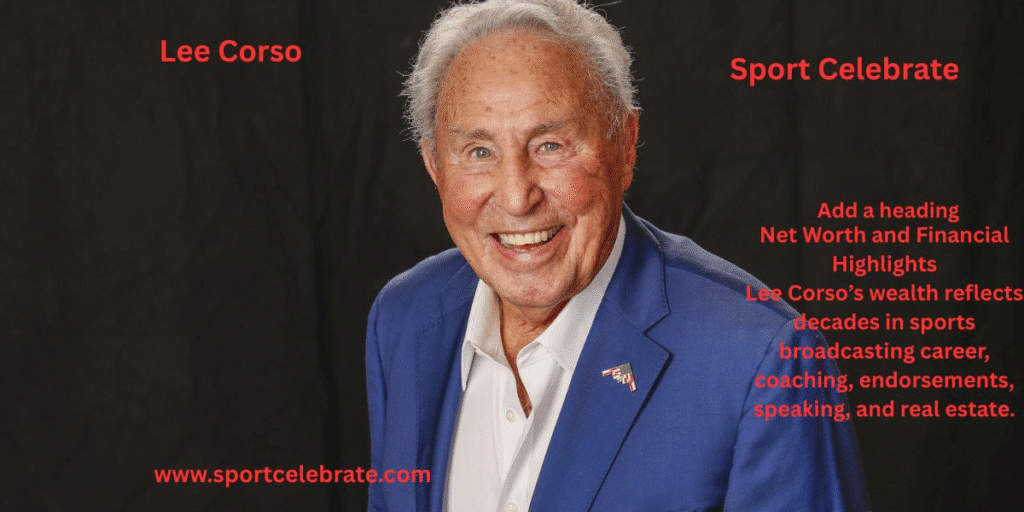
Lee Corso’s wealth reflects decades in sports broadcasting career, coaching, endorsements, speaking, and real estate. Estimations hover around $12 million in net worth as of 2025. Most sources agree on that ballpark.
His ESPN salary is a major part of earnings, but not the only one. Corso also gets income from public speaking, charity events, possibly books, and endorsements. Real estate holdings also contribute.
Though some reports suggest net worth closer to $14 million, the most reliably cited number remains $12 million. His financial profile shows how a long career in college football broadcasting plus diversified revenue can generate lasting wealth.
Estimated Net Worth
Estimated at about $12 million, Corso’s net worth reflects many revenue streams. ESPN salary is primary. Other income sources include endorsements, college football analyst salary outside ESPN, residuals, and speaking engagements.
His real estate in Florida has appreciated. Also, assets built through charity work, leadership roles in non‑profits, and legacy contracts contribute to wealth. The number fits his long service and iconic status rather than flashy new contracts.
ESPN Salary and Earnings
Estimates suggest Corso earns around $2 million per year from his work at ESPN, especially on College GameDay. Over time, that salary rose as the show’s ratings increased. His role expanded, his visibility grew, giving him leverage in contract renewals.
Bonuses, travel stipends, and ancillary revenue (promo work, special events) likely added more. Compared to average football analyst salary, this is much higher, reflecting experience, popularity, and longevity.
Income from Other Ventures
Besides ESPN, Corso has balanced his income through other avenues. He gives speeches at universities and sports gatherings. He participates in charity functions. He has endorsement deals tied to his recognizable style and legacy. Sometimes he sells signed merchandise related to his headgear picks tradition.
Real estate holdings also provide value. These ventures might not match his base salary, but they bolster his financial position, especially in later years, when his role on GameDay is less frequent.
Major Career Achievements
Lee Corso’s impact stretches beyond numbers. His achievements in coaching, broadcasting, and personality are many. He won conference titles as a coach. He survived adversity, including a serious stroke in 2009, and returned to the screen.
He created traditions in college football media, influenced generations of analysts, and helped shape how fans enjoy the sport. His awards include media broadcasting awards, halls of fame, and popularity honors.
His memorable moments on College GameDay—crowd reactions, big upset predictions, dramatic headgear picks—are part of college football lore.
Notable Moments from College GameDay
His first mascot headgear pick in 1996 set the tone for what many expected every Saturday. When he predicted big upsets like Stanford over USC with his headgear, fans buzzed. His return after his stroke became an emotional tribute to perseverance.
The show often turned Corso’s interactions into memes and highlights. His phrase “Not so fast, my friend!” planted him in fan culture. These moments made College GameDay what it is.
Memorable College GameDay Statistics
| Statistic | Value |
| Number of mascot headgear picks | Over 400 by 2023 |
| Win‑loss record for picks | ~286‑144 |
| Years on ESPN College GameDay (before retirement) | 38 years, from 1987 to August 2025 |
These numbers show consistency. His success in predictions, long tenure in sports broadcasting, and fan loyalty via viewership make him rare in the field.
Coaching Career Legacy
As a coach, Corso led Louisville, Northern Illinois, and most notably Indiana University. His coaching record is modest but respected. He often worked at institutions without the deepest pockets. Yet he developed players and built programs.
He also coached in the USFL briefly. Coaching built his credibility; it taught him strategy and leadership, which made him a better college football analyst later. His impact as a coach still echoes, especially for Indiana University alumni and fans.
Awards and Honors
Corso received multiple honors during his career. He has been inducted into halls of fame (among them Florida Sports Hall of Fame and Louisville Athletics Hall of Fame). He earned recognition for his broadcasting, including awards tied to college football broadcasting awards.
He was often featured in media tributes. Institutions have given him lifetime achievement awards. Fans and colleagues similarly acknowledge his influence on the sport and on fan engagement.
Key Relationships and Collaborators
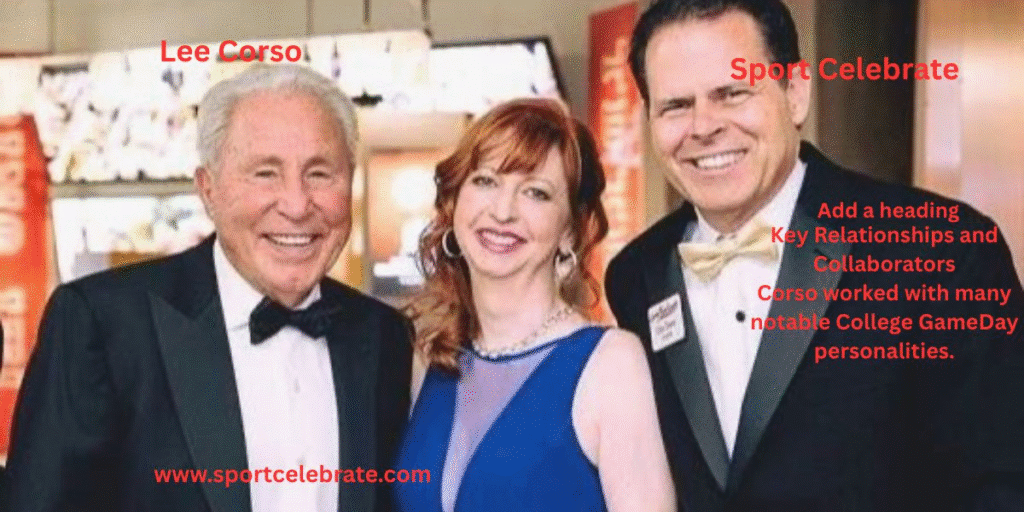
Corso worked with many notable College GameDay personalities. He built relationships with Kirk Herbstreit, Rece Davis, Desmond Howard and others. These relationships enriched the show, gave viewers sparks of debate, laughter, and drama.
Outside ESPN, he once roomed with Burt Reynolds at FSU. Many coaches and analysts say Corso taught them about storytelling, football history, and connecting with fans. His collaborations contributed to his influence in college football media coverage.
Comparison: College GameDay vs. Big Noon Kickoff
College GameDay, with Corso’s legacy, often felt like a cultural event. Big Noon Kickoff, another pregame show on Fox Sports, emerged more recently to compete. While Big Noon has its strengths—zeal, newer graphics, younger audience—it lacks the decades of tradition Corso brought. College GameDay has advantage in viewership, consistent fan trust, and historical moments.
Corso’s presence gave GameDay intangible weight: his opinions, his humor, his headgear picks habit shaped viewer behavior. In head‑to‑head comparisons, GameDay tends to win when tradition and personal legacy matter to the audience.
Personal Life and Community Involvement
Lee Corso married his longtime spouse, Betsy, in 1957. They have four children and many grandchildren. He lives in Florida and has deep ties to community and charity. He supports college football charity work, participates in philanthropy and advocacy especially for children’s hospitals and causes linked to sports safety.
He is known for contributing to programs focused on concussion awareness in football, working with NCAA programs and others. Corso also engages in public speaking, often using humor and wisdom drawn from his journey. Fans respect his openness about health challenges and his commitment to using his platform for good.
Media Presence and Public Influence
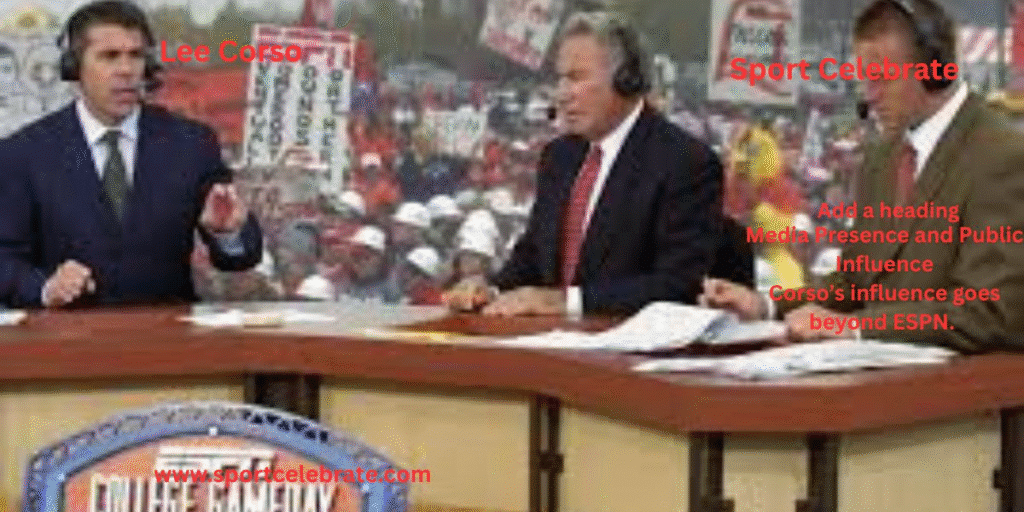
Corso’s influence goes beyond ESPN. On social media, his catchphrases, past predictions, and memorable GameDay moments get shared widely. His public appearances—keynotes, charity events—reinforce his status.
He also influenced college football fan engagement: people share memes, pick against his predictions, debate his opinions. Corso has spoken often about the evolution of the sport, issues like Big Ten and Pac‑12 realignment, safety and health, media rights, etc. His manner of commentary and humor added to his reputation.
Over years, his presence helped shape how shows treat tradition, spectacle, and analysis together in college football broadcasting.
Additional / New Information
| Item | Detail |
| Final Appearance Date | Lee Corso will make his final headgear pick on ESPN’s College GameDay on August 30, 2025 (Week 1 of college football season). |
| Total Mascot Headgear Picks | He’s made 430 mascot headgear selections by that final show. |
| Record of Picks | His record in those headgear picks stands at 286‑144 wins vs losses. |
| Most Picked Teams | Ohio State has been picked the most (45 times), followed by Alabama (38), LSU (25), Florida (22), Oregon (21). |
| Number of Different Teams Picked | Corso has used headgear of 69 different teams across his selections. |
FAQs
What is Lee Corso net worth in 2025?
Approximately $12 million, based on sources like Celebrity Net Worth and others.
How much does Lee Corso make from his ESPN contract?
Estimates suggest about $2 million annually, though exact terms of his ESPN contract details are private.
How many mascot headgear picks has Corso made, and what is his record?
He made over 400 picks by 2023. His win‑loss record is roughly 286‑144.
When did Lee Corso start at ESPN, and when will he retire?
He joined ESPN’s College GameDay in 1987. He is retiring after nearly 40 years, with his final appearance scheduled for August 30, 2025.
What causes does Lee Corso support?
He is involved in concussion awareness, supports children’s sports charities, participates in advocacy for health and safety in football, and supports college football philanthropy.
Final Thoughts
Lee Corso’s career shows that passion, character, and consistency can build a legacy both on field and in front of cameras. The story of Lee Corso – ESPN Contract, Net Worth, Detailed Information isn’t just about dollars. It’s about how one man helped transform college football broadcasting, created moments fans cherish, and used his platform for good.
He carved out a space where analysis meets performance, where humor meets integrity, and where tradition meets change. As he retires, his net worth and contract renewals matter, but the deeper value lies in what he gave to college football and fans.

Will Smith, founder of SportCelebrate.com, shares the best sports gear and celebration finds to fuel your passion and joy.

